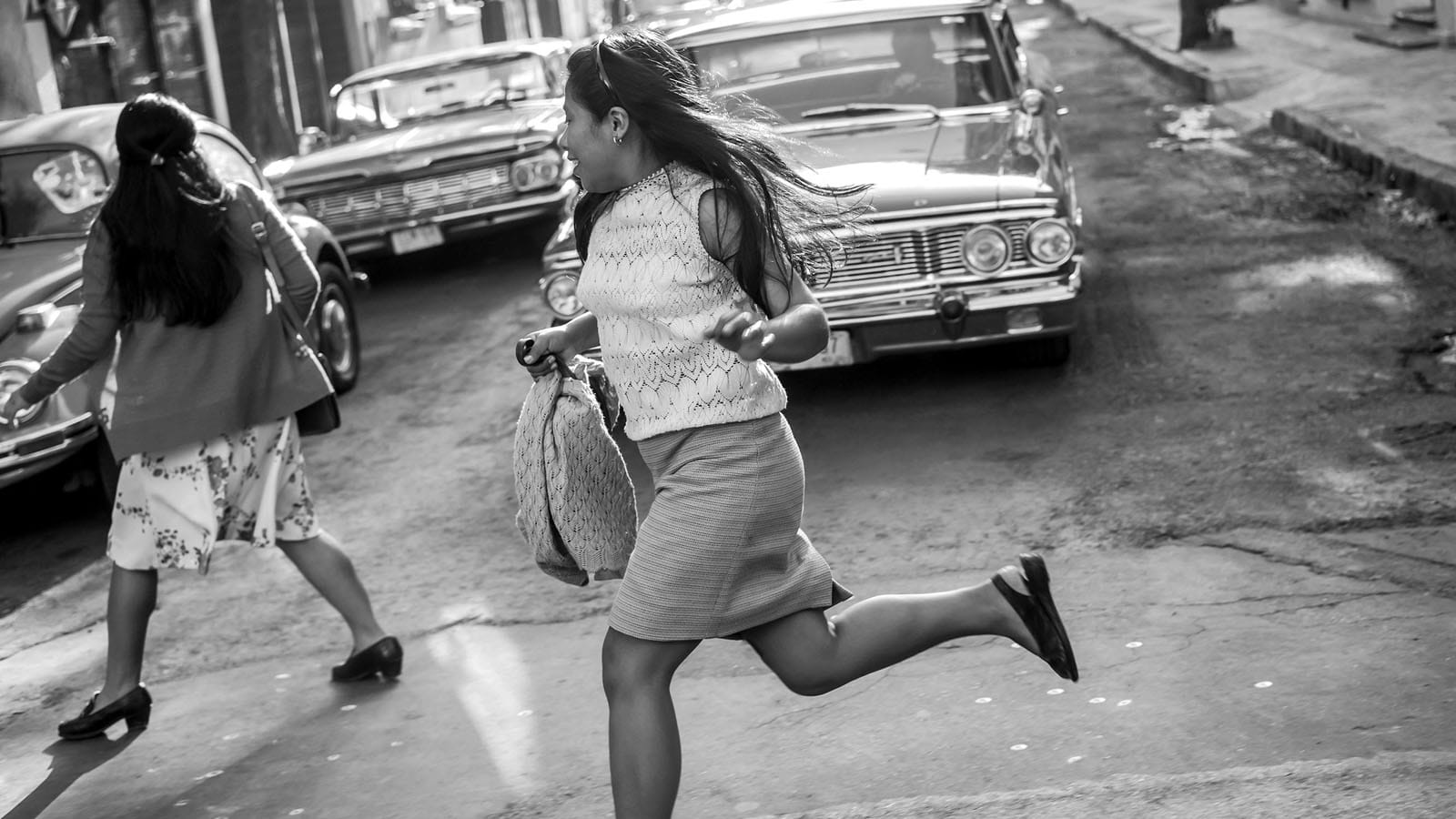Critics Laud Roma

Over the weekend, critics’ groups in Los Angeles,Chicago,San Francisco,Philadelphia, and Toronto all gave their awards for best film of 2018 to Roma, Alfonso Cuarón’s captivating chronicle of a year in the life of Cleo, the maid and nanny who holds a middle class family together in Mexico City. Set in 1970 and 1971 and based on Cuarón’s own childhood memories, Roma blends personal trauma and political unrest, and as Anthony Lane points out in this week’s New Yorker, some have argued that Cuarón has failed to sufficiently link the private and social upheaval of his story. “The bridling wrath of the underclass that we find in Italian neorealism—‘I curse the day I was born,’ is the hero’s cry in Bicycle Thieves (1948)—is wholly absent,” he writes. “Yet here’s the thing: Roma is persuasive in its beauty. It wins you over.”
Like Lane, Nick Pinkerton, reviewing Roma for Sight & Sound, sees this beauty rooted in the influence of Italian cinema, noting that “Cuarón’s use of black-and-white widescreen and long, patiently unwinding sequence shots, often organized as a series of deliberate panning pivots from a planted point, suggests at times the Italian drama of the ’50s and ’60s. There is a bit of Federico Fellini in its bigger-than-life inflation of autobiographical memory, of the legacy of neorealism in its mixture of professional and nonprofessional performers, and also of the lesser-known Antonio Pietrangeli, whose filmography is filled with instances of quietly intricate blocking and camera-play.” In Little White Lies, where Adam Woodward interviews Cuarón, David Jenkins agrees that the director “silences the showman inside him. In past triumphs like Gravity, Children of Men, or even Harry Potter and the Prisoner of Azkaban, Cuarón has been happy to leave the gorgeous smudges of his fingerprints on the work. Here, he does everything in his power to retain a pristine purity . . . This is his magnum opus, unassuming, emotional, never melodramatic, and sublime in its scope and commitment to detail.”
More Lists and Awards
Bing Liu’s Minding the Gap, a look back at how he and two skateboarding friends, all from struggling working-class families, overcame hardship together, took home awards for best feature, emerging director, and editing when the International Documentary Association presented its honors on Saturday night. Hilary Lewis has the full list of winners in the Hollywood Reporter.
The staffs at NPR and the Ringer have drawn up their best-of-2018 lists, while Talkhouse is doing something a little different this year: they’re inviting filmmakers to offer a few words on their personal favorites. Boots Riley (Sorry to Bother You), for example, is such a fan of Panos Cosmatos’s Mandy that he’s bought a Nicolas Cage t-shirt, while Jason Reitman (The Front Runner) enthuses over Hannah Fidell’s The Long Dumb Road (“exactly the kind of film we need right now”) and Pawel Pawlikowski’s Cold War (“so good, it’s scary”).
In the New York Times, A. O. Scott and Wesley Morris spotlight some of the best performances of the year, and contributors to the A.V. Club have written about their favorite scenes. And for anyone with even the slightest appreciation of fine design, Adrian Curry’s annual gallery of the best movie posters of the year for the Notebook is unmissable.
For news and items of interest throughout the day, every day, follow @CriterionDaily.



